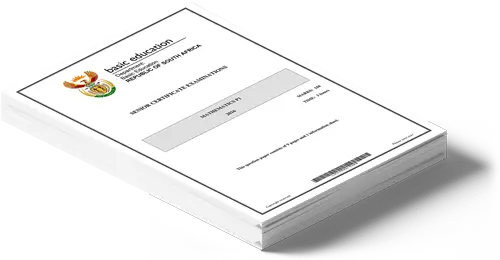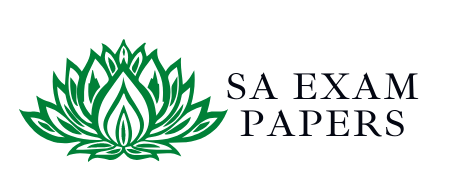Need More Study material
Check out our Additional Resources Section. We have a large collection of Videos and Study Guides available for you

Welcome to the GRADE 12 SESOTHO Past Exam Paper Page. Here, you’ll find a comprehensive range of grade 12 past year exam papers and memos, ranging from 2024 to as far back as 2009.
Our collection will help you prepare for your upcoming exams by familiarizing yourself with the exam format and identifying areas for improvement.
We have a vast collection of DBE NSC and Common Test Papers from National, Western Cape (WC), Kwa-Zulu Natal (KZN), Gauteng (GP), Eastern Cape (EC), Mpumalanga (MP), North West (NW) and Free State (FS).
Sesotho Home Language (HL) or First Additional Language (FAL) or Second Additional Language (SAL) Question Paper 1 and Paper 2, as well the Memorandum can easily be found on this page and We have it grouped by Year and Exam Month.
View or Download our available content. Please share this Website with your school Colleagues, Friends and Teachers.
Please Support our Team
SA Exam Papers intends on being the Number ONE Resource, Go-To Website, for all your PAST EXAM PAPER CONTENT. Help us keep our Awesome Service running by Donating to our Worthy Cause.
More details on our HOME page on how to Donate.
Sesotho, one of the official languages of South Africa, holds a significant place in the Grade 12 curriculum. Its inclusion not only preserves an important cultural heritage but also empowers students by enhancing their linguistic skills, enriching their cultural understanding, and broadening their professional opportunities. Here’s why Sesotho is an integral part of the Grade 12 education system.
Teaching Sesotho at the Grade 12 level helps preserve the language and the cultural heritage of the Basotho people. Students learn about the rich traditions, literature, and history associated with Sesotho, fostering a deeper connection to their cultural identity or enhancing their appreciation for the diversity within South Africa.
Research suggests that bilingualism or multilingualism, including the study of indigenous languages like Sesotho, can enhance cognitive abilities. These include improved problem-solving skills and greater mental flexibility. Mastery of multiple languages also tends to improve overall academic performance, as the skills acquired in language learning are transferable to other subjects.
Proficiency in Sesotho enhances students’ ability to communicate with Sesotho-speaking communities, facilitating social integration and mutual understanding in a culturally diverse country. It breaks down barriers and fosters social harmony, which is essential in a multicultural society like South Africa.
Fluency in Sesotho can open up various career opportunities, particularly in regions where it is widely spoken. This linguistic skill is advantageous in fields such as education, media, public administration, and social services, where communication with diverse groups is essential. Additionally, local language proficiency is increasingly valued in the global market, where cultural competence is a significant asset.
Grade 12 students studying Sesotho have the opportunity to delve into a vast and enriching literary tradition, including poetry, novels, and plays written in Sesotho. Engaging with this literature not only improves language skills but also provides profound insights into the human condition, social issues, and historical perspectives unique to the Basotho people.
Sesotho literature and studies often reflect the values, ethics, and communal life of the Basotho. Learning about these aspects through Sesotho helps instill a sense of moral responsibility and community-oriented thinking in students. It promotes values such as respect, humility, and unity, which are crucial for personal development and societal well-being.
Promoting the learning of Sesotho supports the broader educational goal of multilingualism, valued highly in today’s interconnected global society. Students equipped with multiple language skills, including indigenous languages, are better prepared to participate in global dialogues and understand international issues.
Incorporating Sesotho in Grade 12 is not merely about language acquisition; it is about nurturing an inclusive society where diversity is celebrated and understood. By learning Sesotho, students gain a deeper understanding of their world and the various people in it, preparing them for more informed and engaged citizenship. Sesotho education supports personal development, cultural appreciation, professional readiness, and national unity, making it an invaluable part of the high school curriculum.
We have more older Sesotho Past Exam Papers from 2017 to 2009. Click the link below to access them.
Sesotho 2017 - 2009Check out our Additional Resources Section. We have a large collection of Videos and Study Guides available for you
All content available on our Website is completely free! You are allowed to view or Download Any content however the Leaching of our Links are Strictly Prohibited! All Past Exam Papers are obtained from Valid Sources! Some content may contain errors.
All content hosted are free of Malware or Viruses. If you are found breaching our T&C’s, you will be blocked from our services. We reserve the right to take Further Action against those Breaching our T&C’s.
